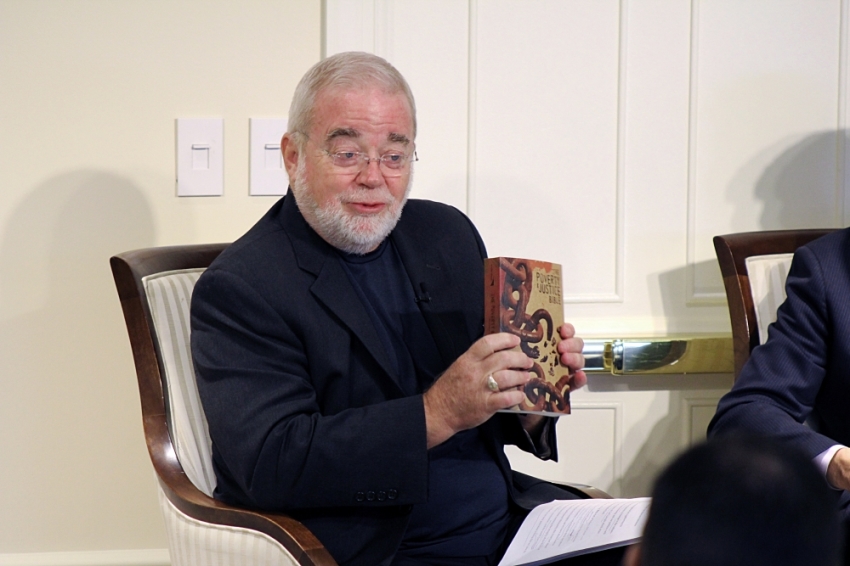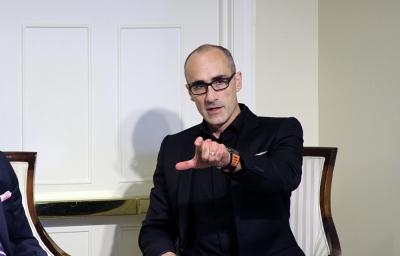Can Liberal and Conservative Christians Agree on How to Fight Poverty?

WASHINGTON — The political stalemates between Republicans and Democrats on Capitol Hill stood in stark contrast to the shared vision on how to address poverty recently expressed by Jim Wallis and Arthur Brooks at an American Enterprise Institute event.
AEI's 2014 Evangelical Leadership Summit featured a Sept. 10 "debate" (really more of a discussion) between Wallis, president of Sojourners and longtime leader of the Evangelical Left, and Arthur Brooks, a Catholic and president of AEI, a conservative think tank.

Wallis and Brooks mentioned that they have participated in many debates across the country, often on college campuses. They were set up as opponents in a liberal versus conservative debate on how best to address poverty. What they found, though, was they ended up mostly agreeing with each other.
"People set us up for debates and the debates became conversations," Wallis explained.
The audience laughed as Brooks joked, "It's not that we're trying to not disagree, because we're plenty disagreeable people."
They found it difficult to talk about the areas of disagreement, Brooks explained, because they both cared much about the areas where they agreed.
"When your heart is focused on something truly important and you agree, you can't get off that topic. That's the important thing," he said.
Wallis emphasized the need for "a new conversation and new approach to overcoming poverty."
Both liberals and conservatives have allegiances, he argued, that can serve to undermine efforts to address poverty. Due to those allegiances, Democrats are reluctant to challenge the public sector and Republicans are reluctant to challenge the private sector.
Conservatives should acknowledge that an adequate and effective safety net for those who fall on hard times is "an important achievement of a good society," Wallis encouraged. Meanwhile, he added, liberals need to realize that a safety net can help the poor but will not pull people out of poverty.
Brooks described Wallis' words as "inspirational" and said he agrees with "almost everything" Wallis said.
"I feel like you just read from my notes," Brooks told Wallis. "There is so much common ground, from the public policy implications of what he's saying to basic concerns about the poor from a biblical worldview."
Brooks agreed that there should be an effective government safety net, adding that we should view the safety net as a privilege we have due to our nation's wealth.
A government safety net, he said, is the "greatest thing that free enterprise and capitalism has ever created," because at "no time in the history of the world has any society been able to afford this."
"It's not just our obligation, it's our privilege to declare peace on the safety net for the truly indigent," he added.
Both Brooks and Wallis praised, in particular, the Earned Income Tax Credit, a federal program that provides additional income to low income workers, as a way to aid those in poverty while also encouraging work.
Brooks said he often tells his fellow conservatives that "it's time to make peace with the safety net and expand the EITC to make work pay."
The only policy area where they noted a disagreement during the presentation was over the minimum wage. Wallis encouraged raising the minimum wage as a way to "make work work" for the millions of low income Americans experiencing wage stagnation. Brooks argued that raising the minimum wage would have a detrimental effect on low income young black men by putting them out of work or making it harder for them to find work.
Raising the minimum wage is "great for my teenage children," he said, but it is "not great for the people you most care about."



























